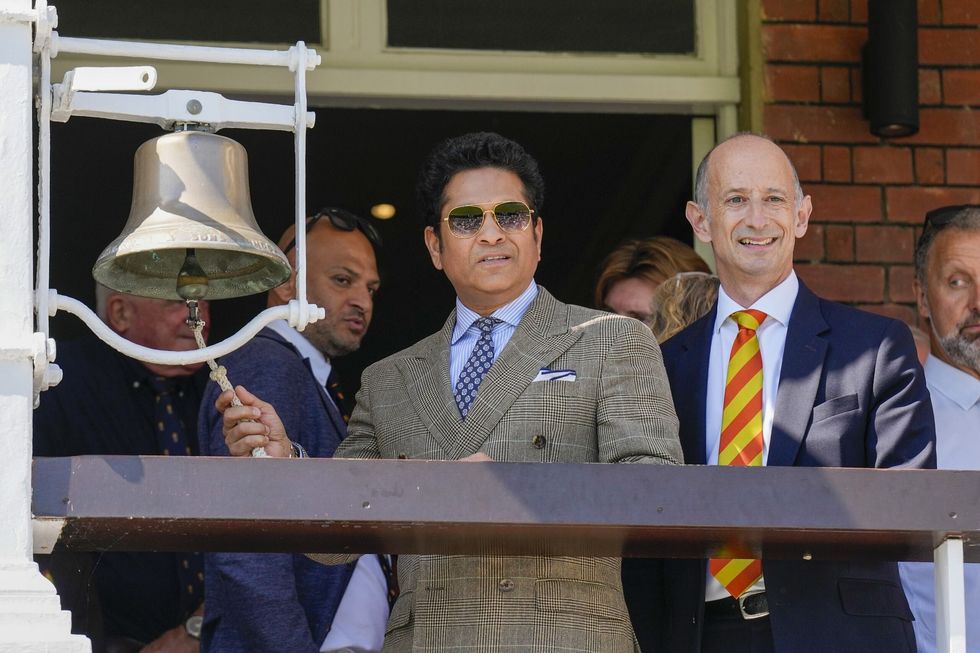PAKISTAN'S foreign ministry on Monday (26) summoned the US embassy's deputy chief of mission to express concern over a statement last week by US president Joe Biden and India’s prime minister Narendra Modi that called on Pakistan to ensure its territory was not used as a base for militant attacks.
The statement from the United States and India was released after a meeting between the two countries' leaders at the White House last Friday (23) and had received criticism from Pakistan, which called it contrary to diplomatic norms.
"It was stressed that the United States should refrain from issuing statements that may be construed as an encouragement of India's baseless and politically motivated narrative against Pakistan," Pakistan's foreign office said in a statement.
"It was also emphasized that counter-terrorism co-operation between Pakistan and the US had been progressing well and that an enabling environment, centred around trust and understanding, was imperative to further solidifying Pakistan-US ties."
The joint US-Indian statement last week said: "They (Biden and Modi) strongly condemned cross-border terrorism, the use of terrorist proxies and called on Pakistan to take immediate action to ensure that no territory under its control is used for launching terrorist attacks."
It added, "President Biden and Prime Minister Modi reiterated the call for concerted action against all UN-listed terrorist groups including Al-Qaeda, ISIS/Daesh, Lashkar e-Tayyiba (LeT), Jaish-e-Mohammad (JeM), and Hizb-ul-Mujhahideen," the joint statement said.
US State Department spokesperson Matt Miller told reporters in a daily news briefing that Pakistan had taken important steps to counter terrorist groups, but said Washington advocated for more to be done.
"At the same time, however, we have also been consistent on the importance of Pakistan continuing to take steps to permanently dismantle all terrorist groups, including Lashkar-e-Taiba (LeT) and Jaish-e-Mohammad, and their various front organizations and we will raise the issue regularly with Pakistani officials," he said.
LeT is the Islamist group blamed for the 2008 Mumbai attacks in which more than 160 people were killed, while Jaish-e-Mohammad claimed responsibility for a 2019 bombing in Indian Kashmir that killed 40 Indian paramilitary troops.
"They (Biden and Modi) called for the perpetrators of the 26/11 Mumbai and Pathankot attacks to be brought to justice," their Indo-US joint statement said.
Pakistan's army claimed last Saturday (24) that two civilians were killed by Indian forces in firing across the line of control, the de facto border in Kashmir, the first such conflict since a ceasefire in 2021 between the neighbours.
The special status given to Jammu and Kashmir was revoked in 2019 when New Delhi split it into two federally controlled territories. Pakistan has called the moves illegal and wants them rolled back.
Pakistan also said it was "deeply concerned" over the planned transfer of advanced military technologies to India, saying such steps would not prove helpful in achieving peace in South Asia.
The United States historically has been a close partner of Pakistan, but its patience wore thin over ties between Afghanistan's Taliban and Islamabad's powerful military and intelligence apparatus.
The Biden administration has kept Pakistan at arm's length since the US withdrawal from Afghanistan in 2021, in contrast to warming relations with India.
India and the United States also voiced "deep concern about the deteriorating situation in Myanmar," where the military ousted a fledgling civilian government in 2021.
The two countries called for "the release of all those arbitrarily detained, the establishment of constructive dialogue and the transition of Myanmar toward an inclusive federal democratic system."
The United States has imposed a slew of sanctions on Myanmar's junta, but New Delhi has maintained a comparatively cordial relationship, mindful that the country borders unstable parts of northeastern India.
The statement released by the White House referred to the country as Myanmar and not the former name of Burma, which the United States uses.
(Agencies)
Pakistan rebuffs Modi-Biden statement on terror
Islamabad urges Washington not to encourage New Delhi's ‘baseless' narrative






 (Photo credit: PTI)
(Photo credit: PTI)










 Kendrick Lamar and SZA commands the stage at Villa Park during his explosive opening setInstagram/
Kendrick Lamar and SZA commands the stage at Villa Park during his explosive opening setInstagram/
